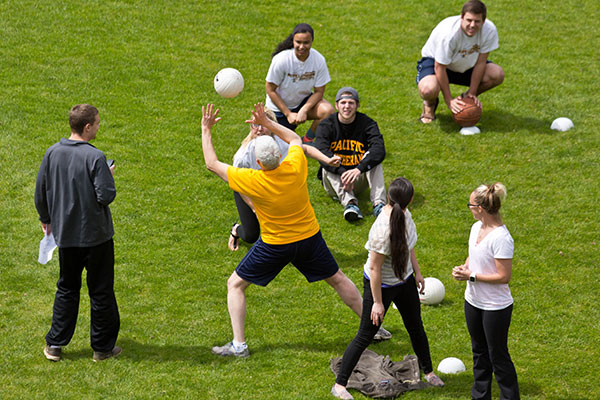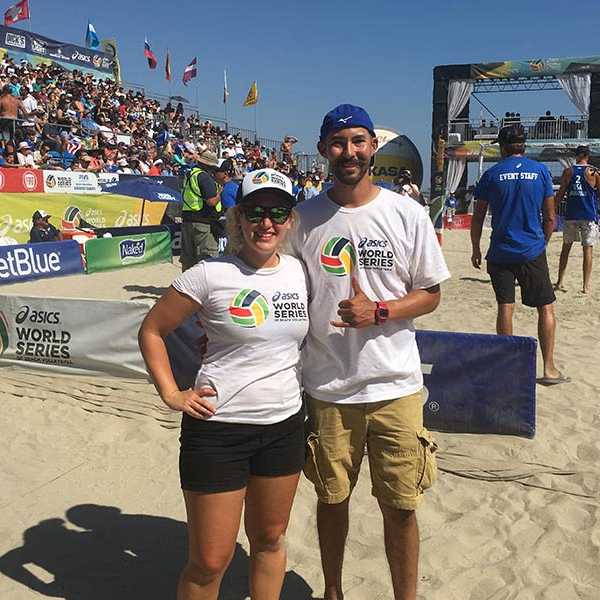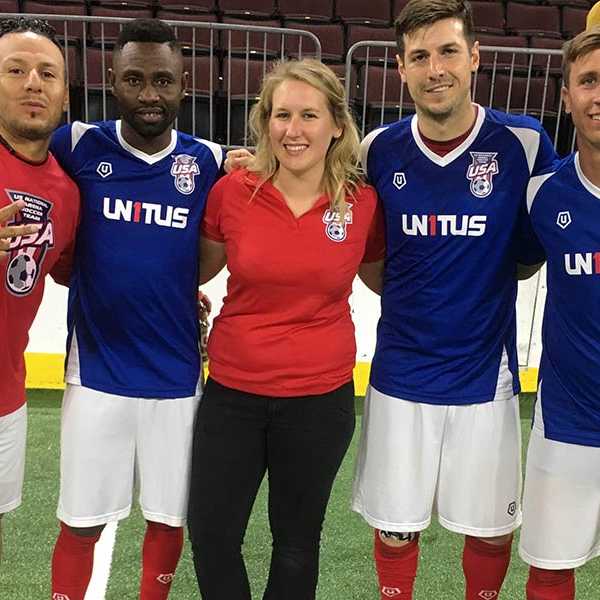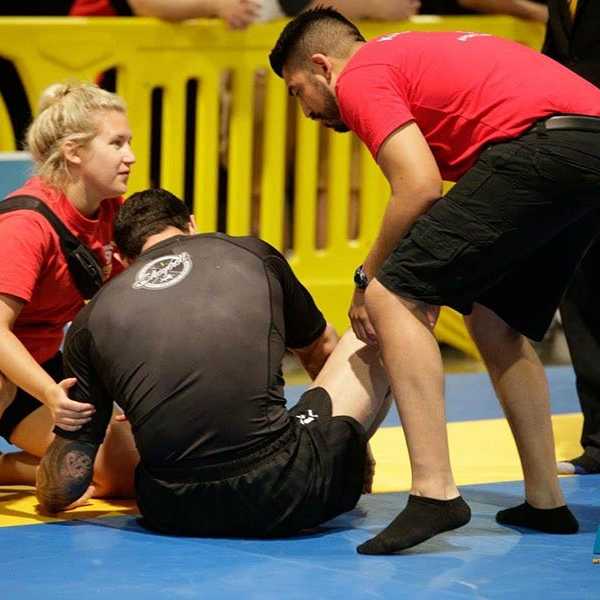Shelby Daly ’13 knew something was wrong.
It was the summer before her junior year at Pacific Lutheran University, a few weeks before the start of preseason soccer practices. During a workout at the middle school two blocks from her family’s home in Kenai, Alaska, Daly began to feel lightheaded.
She was dizzy. She couldn’t catch her breath. She called her mom for help. When her mom arrived at the field, she found her daughter unconscious and called for an ambulance. The hours and days that followed changed Daly’s life forever.
After that ambulance ride – during which her heart rate soared to life-threatening levels – she was transported via helicopter to a hospital in Anchorage. The next day, doctors diagnosed her with Arrhythmogenic Right Ventricular Dysplasia (ARVD), a rare type of cardiomyopathy that occurs if the muscle tissue in the heart’s right ventricle dies and is replaced with scar tissue, according to the American Heart Association. Doctors implanted a cardioverter defibrillator (ICD) in her chest the same day.
ARVD is believed to be a genetically inherited disease, and is one of the most common causes of sudden cardiac arrest among young athletes. Daly said her uncle died of it at age 28.
“Usually,” Daly said, “ARVD is diagnosed upon autopsy.”
In that sense, Daly was fortunate. Still, it wasn’t easy adjusting to the constraints of the condition. Because ARVD is aggravated by exercise, Daly had no choice but to retire from soccer, the sport to which she had dedicated so much of her life.
“It was heartbreaking,” she said. “It was hard, because my friends were all away at soccer during the week and on the weekends. I just tried to become more involved on campus. I tried to enjoy the social aspect of college more.”
She wasn’t used to having so much free time, but those newfound hours weren’t all bad. Daly always wanted to get involved in the athletic-training room at PLU, but her soccer schedule kept her too busy. After her diagnosis, she had the time, “and it just kind of clicked with me.”
That experience helped crystalize her career choice: rather than become a strength and conditioning coach – a path she had contemplated before her diagnosis – she decided to become an athletic trainer. In 2013, she earned her bachelor’s degree in physical education with a concentration in pre-athletic training and health and fitness management from PLU, then ventured to Cal Baptist University in Riverside, California, where she completed her Master of Science in Athletic Training in 2015.
During the graduation ceremony, held at Citizens Business Bank Arena in Ontario, California, Daly noticed a sign touting a local sports team: the Ontario Fury. She had never heard of it. So she pulled out her phone, punched in a Google search and discovered that the Fury was a professional men’s indoor soccer team and a member of the Major Arena Soccer League (the Fury play in the same division as the Tacoma Stars, based at the ShoWare Center in Kent, Washington, about 25 miles northeast of PLU’s campus).
“I thought, ‘this would be cool to get into,’” Daly said.
After making a few connections, she learned that the Fury sought an athletic trainer. She interviewed with the head coach and got the job. Today, she is the organization’s head athletic trainer.
Beyond her full-time work with the Fury, Daly is an assistant athletic trainer at the California Institute of Technology (known colloquially as Caltech). Despite her part-time status at the Division III institution, she is approved to work up to 39 hours per week.
When the Fury is in season, Daly said she spends roughly five hours with the team in the morning – she also travels to road games – before driving to Pasadena for what is typically a six-hour shift at Caltech. During the week, she said, “I’m basically doing 12-hour days.”
“I don’t know how I survived this past year,” she said with a laugh. “I didn’t really have a lot of time off.”
Daly said she arrives about an hour before the Fury begin practicing, at which time she prepares the players by taping ankles or providing manual or soft-tissue therapy. She is the first responder for any in-practice or in-game injury, and is responsible for administering ice after practice and providing injury updates to the coaching staff. She also is responsible for player hydration, and would like to get more involved in nutrition education for the players.
Through her many relationships in the business, Daly also has worked as a certified athletic trainer at a bevy of events hosted by several organizations: the U.S. Soccer Federation, the Legends Football League (formerly the Lingerie Football League), the West Coast Conference beach volleyball championship, and the International Brazilian Jiu-Jitsu Federation, to name a few. In October, Daly will travel to Tunisia with the U.S. Arena National Soccer Team for the World Minifootball Federation World Cup.
For her final clinical rotation as a student at Cal Baptist, she worked with the now-defunct Los Angeles Kiss, an Arena Football League team owned by – you guessed it – Paul Stanley and Gene Simmons, the frontmen of the rock band Kiss. Daly said she often saw Stanley and Simmons at games.
“They’re very big into entertainment,” Daly said, “so there were a lot of bands that came and performed during the games. That was pretty cool.”
Despite the limitations she must live with due to ARVD, Daly said she is expected to have a normal quality of life. She can’t exercise like she did before, but she stays healthy by walking and doing yoga, and uses medication and her ICD to help manage the condition.
She also has been proactive about learning more about it, starting with her capstone research at PLU. Daly began researching ARVD for her culminating undergraduate project – it’s an important disease for all athletic trainers to know about, she said – and continued her research during her graduate studies at Cal Baptist. In 2014, at the Far West Athletic Trainers’ Association Conference in Las Vegas, she won the research presentation award for her poster titled “Arrhythmogenic Right Ventricular Dysplasia Treatment and Management: A Case Report.”
Crushing as her diagnosis was, Daly has learned to cope with its ramifications. And her blossoming career as a certified athletic trainer shows she’s pretty good at caring for others, too.
She hopes to continue contributing to a profession that she believes is “on the rise,” but doesn’t always receive the proper respect that it should. People often misunderstand the responsibilities and scope of practice for athletic trainers, Daly said, but they have the training and education to put their medical skills to good use.
“Not to emotionalize it, but we are kind of like the over-protective parents that know everything that’s going on with the athlete and want to help fix almost everything,” she said. “We are the prime providers of these athletes, and we know a lot about what’s going on behind the scenes, mentally and physically.”





